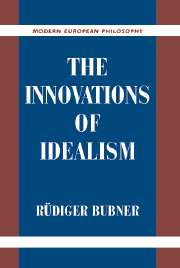7 - Rousseau, Hegel, and the Dialectic of Enlightenment
from HISTORY
Published online by Cambridge University Press: 06 August 2009
Summary
Rousseau was the first Enlightenment thinker who fully grasped the dialectical character of the movement that effectively sought to clarify and shape all forms of life in terms of reason. Enlightenment for Rousseau represents not only an advance but also, and inevitably, a loss. For the universal dissemination of the light of reason nonetheless leaves morality itself in darkness. ‘Telles sont les moeurs d'un siècle instruit: le savoir, l'esprit, le courage ont seul notre admiration; et toi, douce et modeste vertu, tu restes toujours sans honneurs! Aveugles que nous sommes au milieu de tant de lumières!’
Blindness in the midst of illumination – this paradoxical diagnosis was anything but self-evident at the time. The earlier front in the modern struggle for emancipation from prejudice and tradition was oriented without a shadow of doubt towards the idea of progress. The customs and practices that had been handed down from generation to generation, the inherited forms of knowledge, the belief in and deference towards authorities in general – in short, the entire world that was yet to be illumined by the pure and undefiled light of reason – seemed only to survive on the basis of ignorance or force, or a certain fear of using one's own rational powers. The pre-Enlightenment world had no authentic right to exist, but only persisted because of the essentially backward character of current historical conditions. The active overcoming of such conditions amounted therefore to liberation from the forces of superstition and timidity.
- Type
- Chapter
- Information
- The Innovations of Idealism , pp. 145 - 161Publisher: Cambridge University PressPrint publication year: 2003



